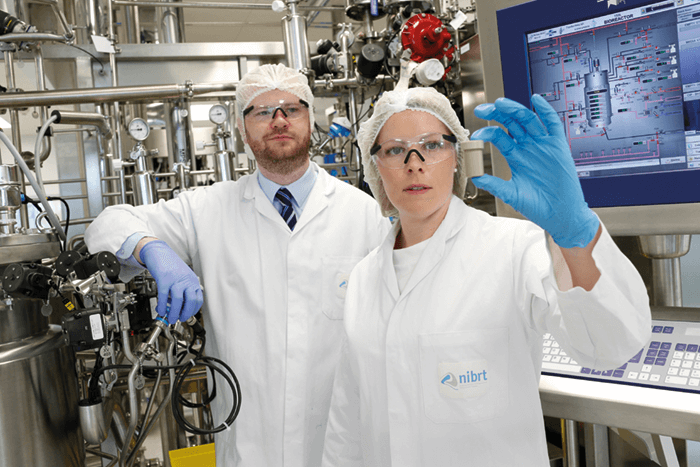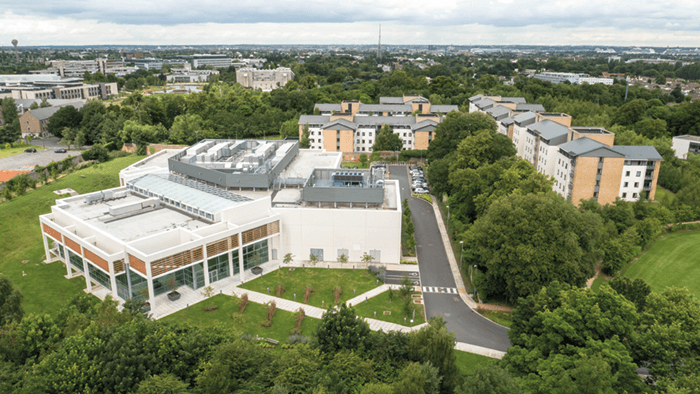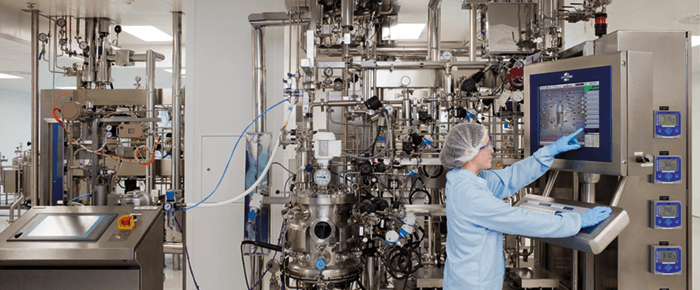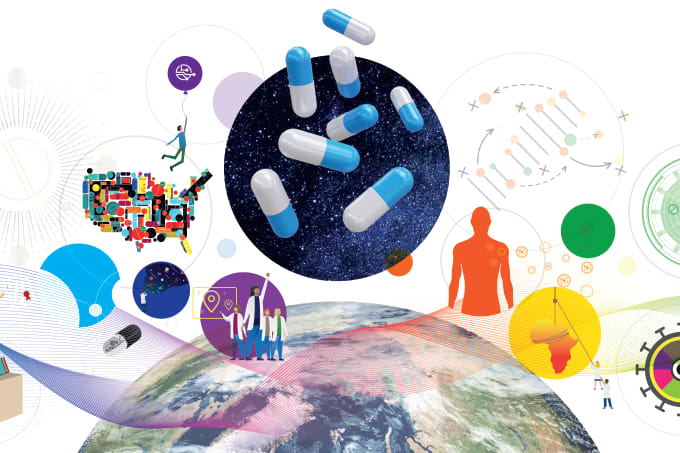In July 2017, Thomas Jefferson University and Philadelphia University merged to create the new “Jefferson.” Over the course of the past seven months, we’ve been asking ourselves some searching questions: what could we be doing differently? Where are the opportunities? What can we achieve together? The first major program to emerge from this creative disruption is a partnership with Irelands’ National Institute for Bioprocessing Research and Training (NIBRT). The aim of the collaboration? To establish a Jefferson Institute of Bioprocessing – the first of its kind in North America. It all started around 18 months ago when Mary Lynne Bercik – who graduated from our business school and now works as a supply chain expert at Johnson & Johnson – heard about the merger. She started thinking about what could be possible with the medical, engineering, and business schools all together at one university. Working for J&J, she knew that biologics had become around 40 percent of the R&D research chain, and that the manufacture of those biologics had been identified as the biggest risk factors in the supply chain. She also knew that J&J and other large pharma companies frequently sent people to NIBRT for training in that area, so she put these factors together and suggested Jefferson look to replicate NIBRT’s success in the US.

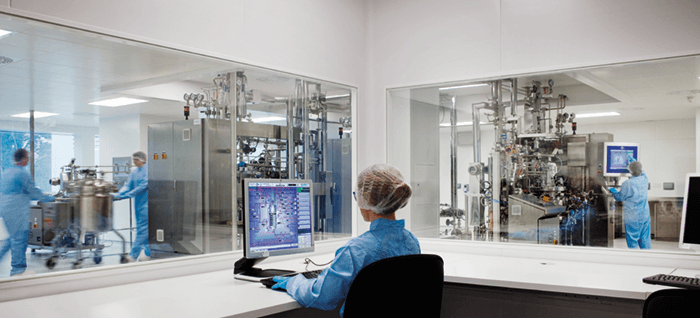
Naturally, we thought the idea was great! But we didn’t want to compete with NIBRT. Instead, we invited NIBRT to partner with us to help deliver the same curriculum at a new institute in Philadelphia. Around 16 months ago, we went to Ireland and we matched up perfectly (both technically and from a personality point of view), which got the ball rolling. We were delighted to make the official announcement of the partnership on February 21, 2018. We are now looking to have our training facility up and running in one year’s time, by March 2019. The new institute will focus on three areas:
- Educating graduate and undergraduate students in bioprocess engineering.
- Providing opportunities for industry professionals to come in and conduct workshops and courses – using the exact same curriculum that NIBRT uses. There are around 900-plus pharma related companies in the North East of the US and around 100-plus universities in the region that could send people to be trained.
- Encouraging workforce development in the local community – there are many local college students and even high school level students who will go on to do technician type jobs in biopharma facilities.
Training Exemplar
Dominic Carolan, CEO of NIBRT, explains how the collaboration got started – and why How did the collaboration start? I was giving a talk at the DCAT conference in New York (on Saint Patrick’s Day as it happens) in 2016. Mary Lynne Bercik from J&J was in the audience and liked what she heard, and asked why the US didn’t have anything similar to NIBRT. She then initiated conversations with the two universities, Philadelphia and Thomas Jefferson, and a body of interest culminated in a visit to NIBRT. There were a dozen or so representatives from both universities at NIBRT’s Biopharma Ambition conference in September 2016. They were enthused by what they saw, and the concept crystalized. What did they like about NIBRT? The sector is hugely important for Philadelphia and, of course, both universities were merging into Thomas Jefferson, which meant the institute could work as a potential flagship program. I went over there in 2017 and met the presidents of the universities, both of whom seemed excited about the prospect of working with us. We’ve been in the business of developing our training curriculum for the past 10 years, so we understand what the industry wants and needs. Many of our clients are US companies, and although we do train some people from the US, it’s an expensive proposition to train a significant number of people in Ireland. So the idea was to have a NIBRT-like facility in Philadelphia for North America. What’s in it for NIBRT? Firstly, we have a global mandate to train and develop talent for the industry – it’s not just an Ireland mandate. Secondly, there’s the question of investment – both in terms of money and in our accumulated intellectual property, such as the training materials that we bring to the table. So there’s a commercial relationship there, and we’ll be sharing revenue with Jefferson. The Jefferson Institute will be focused on single-use technologies, in partnership with GE and J&J. We’ll facilitate the training of their trainers, using NIBRT’s curriculum. Can you see the NIBRT model taking off elsewhere? I think the collaboration shows that we’re well recognized within the global biopharmaceutical industry. The industry is growing at 10 percent per annum, and the need for talent is huge – and it’s rewarding to know that we are looked upon as an exemplar of how to develop talent for the industry. We’ve had colleagues from a number of other countries – France, Belgium, Denmark, and so on – coming to Ireland to see what we do. Quite a few countries will go off and start their own facilities from scratch, training their own staff and developing their own course materials. But for those who want a head start – and want to leverage our expertise and knowledge – we’re more than happy to talk about it! Indeed, we have had some interest in similar partnerships in Asia and other geographies, so I do believe the NIBRT model has a great deal of potential.